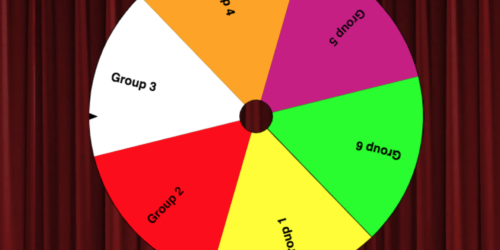
Managing Group Work
Group work can be valuable for learning, and challenging to manage and support. These suggestions aim to provide clear ideas of how to best manage group work.
Value Group Work
- Group work/team work may be important in helping students achieve a program outcome or course outcome. When scaffolded it can be a great experience.
- Group work, over individual and pair work, will increase the likelihood of various challenges as groups are formed, supported and graded but these challenges and ways to resolve them in a supported environment are important learning.
- We can’t assume that students, especially international students have collaborative group work skills. Well-managed group work can build collaboration and communication opportunities – two key 21st century working and learning skills.
Use Group Work as a Deliberate Learning Tool
- Not every course in Semester 1 needs group work. It is best for program teams to plan what courses will have it.
- If the program includes “Group Dynamics” in a previous or concurrent semester, faculty can ask students to propose how concepts learned can apply to how the group work is managed.
- Sufficient in-class group time and checkpoints should be scheduled in the middle of the class time so faculty can circulate and coach as well as note and check off progress.
- It is important to engage students in multiple low or no stakes group tasks in class before a major project starts so that they get to know each other in a collegial manner before being assigned to groups.
Construct Groups Carefully
- The number in the group should not exceed 4 and the final product should be amenable to the number of people contributing to it. For example, a written piece could have 2-3 group members, a group presentation might have 2-4 group members, or a physical product where the student needs to try all skills might have as few as 2 students.
- Consideration should be given to how to form the groups and how to disband dysfunctional groups. Random selection via eConestoga with adjustments seems to result in a more meaningful learning experience. Regardless of how groups are formed some support and re-direction will always be needed.
Create a Group Contract
Students benefit from co-creating a team contract: how they will handle absences, late or non-completion of assigned task; conflict resolution, meeting expectations, etc. If there are problems the group can use their contract to try and resolve the matter before bringing it to the attention of the professor. Any situations involving harassment or coercion should be brought to the Professor immediately. The University of Waterloo has complied a number of links which include templates. Making Group Contracts
Monitor Progress
- Faculty must be ready to manage the group work and not leave students on their own. No matter how teams are determined and how well laid out the assignment is there will always be a need for support in resolving challenges.
- The rubric should reward process as well as product.
- The students should be required to provide evidence of individual contributions. This could look like using collaborative documents, notebooks or folders to monitor version histories, offer feedback on progress, and track changes.







Great Idea